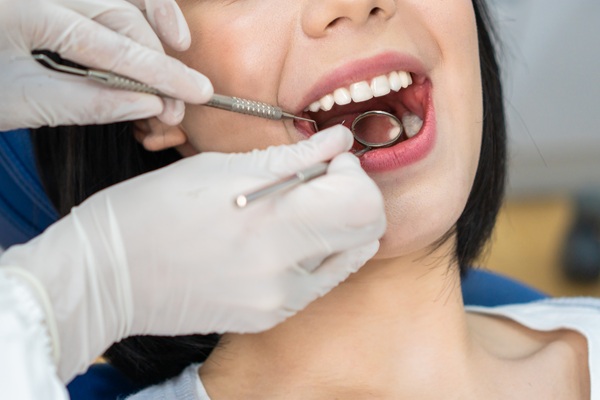 The oral hygiene basics that you need to practice to keep your teeth looking clean and your breath fresh will also protect your teeth from cavities. Good cleaning habits and consistency about your oral care regimen can spare teeth from the damage and decay that causes cavities to form. Here are a few key practices that can safeguard your oral health.
The oral hygiene basics that you need to practice to keep your teeth looking clean and your breath fresh will also protect your teeth from cavities. Good cleaning habits and consistency about your oral care regimen can spare teeth from the damage and decay that causes cavities to form. Here are a few key practices that can safeguard your oral health.
Basic daily care
Daily habits with oral care are instrumental in preventing decay. Being deficient in one or more areas of dental hygiene basics can put tooth enamel in peril.
Brushing
One of the most elementary oral hygiene basics is brushing twice a day. If you brush only once in the morning, the considerable amount of tartar and food buildup can do extensive damage over the course of the day and while you sleep at night. It is imperative that you brush in the evening before you go to bed so that you can remove bacteria as well as substances that are sugary or acidic and cause decay.
Brushing after meals is a good way to step up your brushing regimen. Eliminating any food materials that are lingering in your mouth as soon as reasonably possible following a meal can stop the formation of bacteria before it starts.
Rinsing with fluoride
Not all mouthwash offers the same utility. Many contain only antiseptic agents and do not include an active ingredient that has anticavity properties. When you select a rinse, be sure to select one that includes fluoride as an active ingredient. Rinsing with an anticavity mouthwash can help loosen plaque debris that may be inaccessible with brushing alone. Also, it administers fluoride protection to porous areas on the surface of the teeth including the bottom surface under the gum line.
Flossing
Cavity formation often precipitates from trapped food and tartar that is stuck between teeth. Flossing is an effective way to address this problem.
Picture the section of gum between teeth like a triangle pointing upward. Flossing enables you to thoroughly clean the area between each side of the triangle and the tooth next to either side. As you are flossing, be sure that you are covering both sides of the gum between your teeth. Failing to take this step when you floss may leave plaque behind and cause pockets to form. Large pockets will trap excessive plaque and could lead to tooth decay or gingivitis.
Regular dental cleanings
A professional cleaning at least twice a year is a crucial step in preventing cavities. A hygienist can help you to identify areas in your mouth where you may need to spend more time brushing or suggest other ways that you can improve some oral hygiene basics concerning cavity prevention.
Professional cleanings will strip your teeth of built-up calculus. Regular brushing typically leaves calculus behind, and the buildup can cause tartar to adhere more strongly to your teeth by giving it a rough surface to hang on to.
Your home care and visits with a hygienist will fortify your teeth against decay. Make strengthening and protecting your enamel a priority to avoid unnecessary cavities and fillings.
Request an appointment or call Cosmetic & Family Dentistry of the North Shore at 781-443-8268 for an appointment in our Swampscott office.
Recent Posts
Keeping up with oral hygiene basics can prevent cavities and other issues with your teeth. Proper daily care can also stop discoloration of the teeth and reduce bad breath. Here are some dental habits that people can benefit from including as part of a daily routine.One of the most important parts of oral hygiene is…
A healthy smile requires a lifetime of focusing on oral hygiene basics. Even if you currently have healthy teeth and history of proper dental care, a review of best practices is helpful to maintain good daily habits.Focus on the details of these broad oral hygiene basics to ensure you retain your healthy, natural pearly whites…
Practicing good oral hygiene basics is essential for keeping beautiful, strong teeth and gums as well as staying healthy throughout the entire body. Here are four of the most common ways to ensure excellent oral health and hygiene.Dentists recommend that everyone brush their teeth at least two times per day for two minutes each session.…


